centurylink
Latest
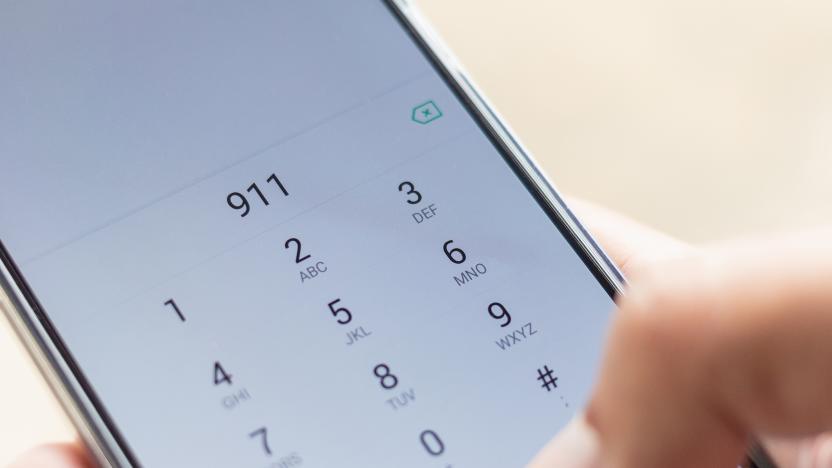
AT&T and Verizon settle FCC 911 outage investigations
Along with CenturyLink and Intrado, they'll pay a combined settlement of over $6 million.

911 mobile services are gradually returning after CenturyLink outage
911 services are gradually coming back online in several states and cities following an outage. An outage at a CenturyLink data center affected 911 mobile calls in Oregon, Arizona, Idaho, Missouri, Seattle, Salt Lake City and other locales.

Utah ISP's internet filtering ad knocks customers offline
Internet providers are no stranger to targeting and inserting ads, but CenturyLink is being a little more... direct. Utah-based customers have discovered that CenturyLink is blocking their internet connections until they acknowledge an ad for the ISP's parental control software. That's annoying by itself, but it's doubly so when users need to fire up a web browser to even know the ad is there. Customer Rich Snapp, for instance, had his Fire TV stream interrupted and didn't realize the ad was present until he started troubleshooting.
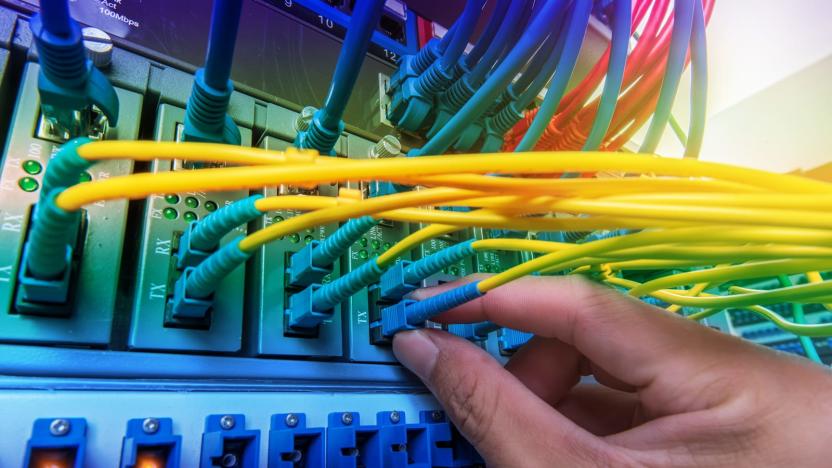
China accused of planting spy chips in US telecom's network (updated)
Tech giants may have vehemently denied Bloomberg's claims that Super Micro gave them hardware loaded with spy chips, but that isn't stopping fresh allegations. Bloomberg has obtained documents from security researcher Yossi Appleboum that reportedly show evidence of an unnamed major US telecom finding "manipulated hardware" from Super Micro in its network. According to Appleboum, there were "unusual communications" from a server that led the telecom to find an implant hidden in the server's Ethernet jack. The researcher determined that the server had been modified at a factory in Guangzhou after conducting an inspection.
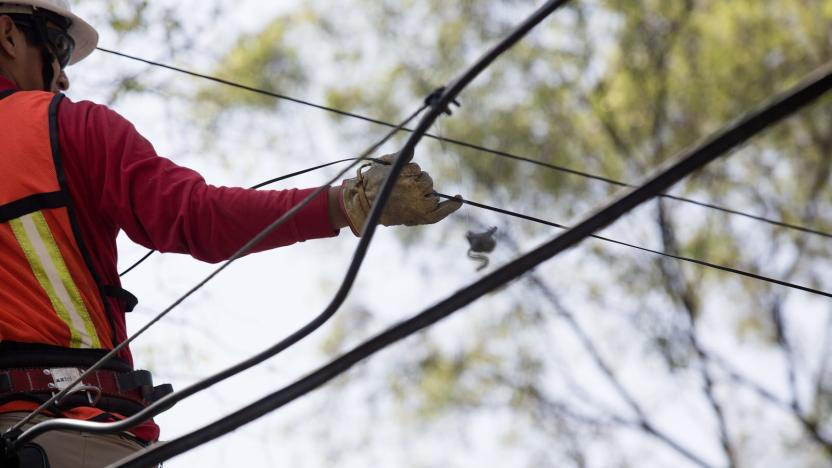
Small internet providers face a fight for their lives
A couple of weeks ago, a group of CEOs from seven small regional ISPs gathered in Washington to meet with the FCC. In a closed-door conversation with Chairman Ajit Pai and his colleagues, the CEOs made a case against a recent petition filed by USTelecom -- a trade association that claims AT&T, Verizon, CenturyLink and Frontier Communications as members. The petition, if granted, would threaten their very existence and, they argue, the future of competitive high-speed internet across the nation.
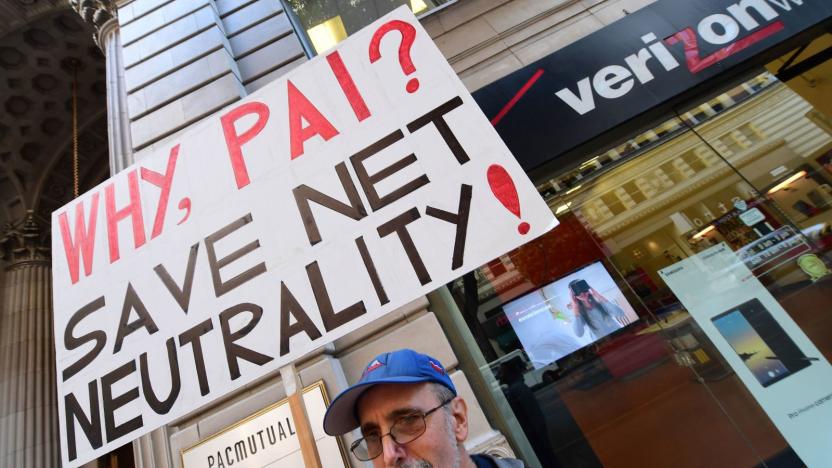
Net neutrality is a double-edged sword for small ISPs
"I have a love-hate relationship with Title II," Tyler Booth told Engadget. Booth is the president of Portland, Oregon-based ISP Stephouse Networks. His company serves more than 1,000 people in a 500 square-mile area, many who wouldn't have broadband access because Comcast often doesn't offer service in rural communities. DSL is available from CenturyLink, but many get unusable speeds because of their distance from the central office. For Booth, classifying broadband as a utility under Title II means he can compete with established providers and his customers get better service as a result. But it also means the government can dictate how he earns a living. "I'm, in principle, for net neutrality and everything it stands for. But when somebody creates regulations that have a direct impact on the costs and finances of my business, I don't really support that."
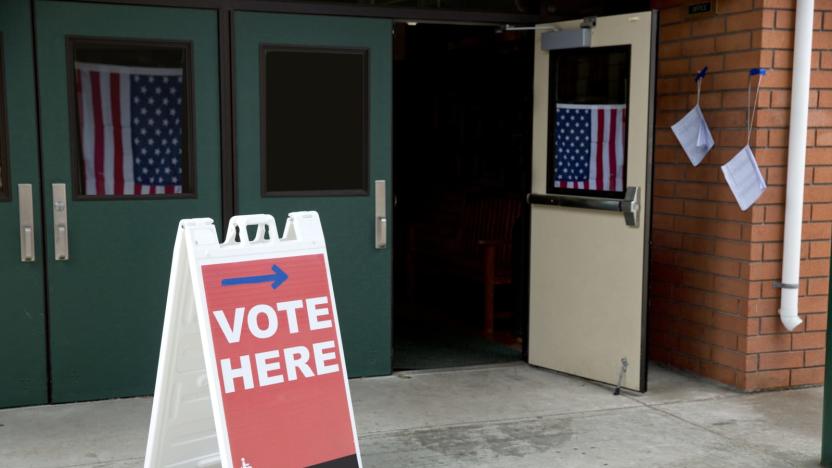
Colorado voters really want city-run broadband service
Internet access and quality varies widely depending on where you live in the US. There's a huge rural broadband gap that the FCC, companies like Microsoft and the Trump administration have said they'd like to close in the coming years and as Cleveland's situation shows, service can be drastically different even within the same city. One solution that has been proposed as a fix for spotty or inadequate broadband service is city-run internet, and it's one that Colorado communities are continuing to back.

Seattle enacts broadband privacy rules where the FCC won't
Just because the FCC and White House have rolled back broadband privacy rules doesn't mean internet providers are free to sell your data without permission... if you live in Seattle, they'll still have to ask nicely. City mayor Ed Murray has implemented a rule requiring that cable companies obtain your consent before sharing your web browsing history and other data whenever it's needed for something besides essential service. As he explains, the city "will act" when it sees the national government stripping "critical consumer protections" -- it's filling in the gap the FCC has left open.
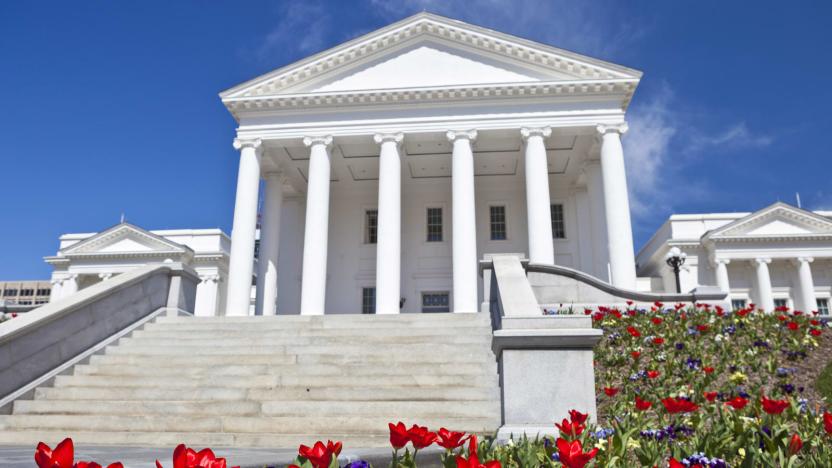
Virginia bill would effectively ban city-run broadband
Now that the FCC can't prevent states from blocking municipal broadband, telecom-backed politicians are doing their best to shut down these government-run networks. Virginia House Republican Kathy Byron has put forward a bill that would make municipal internet virtually impossible. Towns couldn't offer internet service so long as there's at least one private provider offering 10Mbps downloads and 1Mbps uploads to 90 percent of customers in the area -- and that's pretty easy to find in Virginia. Those towns that do clear this hurdle would have to both conduct a "comprehensive" assessment and give private ISPs 6 months to come up with solutions that are potentially less expensive.
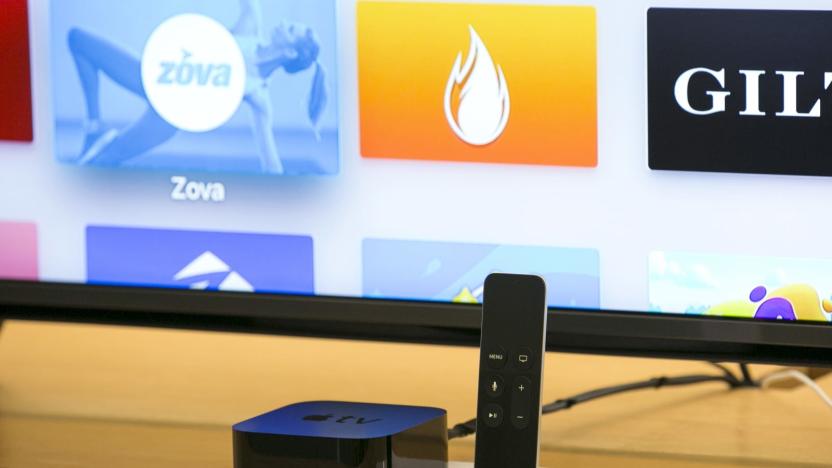
Apple's TV single sign-on feature goes live in the US
Apple just made your TV watching much easier... if you subscribe to the right services, that is. After dropping some hints in November, Apple has activated its promised single sign-on feature for Apple TV and iOS users in the US, but only for a handful of offerings. DirecTV, Dish and cord-cutter service Sling TV are the highlights among providers. Only some channel-specific apps can use SSO as well: A&E, Bravo, NBC, Syfy and USA are among the choices, and the option isn't always available on both Apple TV and iOS gear.

US telecoms try to kill net neutrality by blocking key rules
The big US telecoms are trying every trick in the book to kill net neutrality, and that includes some very specific tactics. AT&T, CenturyLink and multiple industry groups have sent filings to the FCC asking it to block specific procedures, not the neutrality rules themselves. They want to stop the Commission from both reclassifying the internet as a utility and implementing a standard that prevents providers from "unreasonably interfering" with your internet access. Purportedly, these moves would require "crushing" costs and might chill investments in network upgrades -- arguments we've definitely heard before.

Your internet is probably slower than advertised
When it comes to internet speeds, "you get what you pay for" is pretty far from the truth a majority of the time. The Wall Street Journal used Ookla's speed-testing data to survey some 800 US cities and 27 ISPs in terms of advertised transfer rates and what customers are actually getting, and the results are pretty surprising. A vast majority of providers give their customers the short shrift on speed (Verizon Internet Services and AT&T Uverse are among the most prominent offenders), while a handful of ISPs including Charter, Earthlink and Midcontinent Communications actually exceed promised speeds by eight percent or more. A probable reason for the latter is because those listed are smaller providers, with likely lighter user-loads than, say, Comcast or CenturyLink.

CenturyLink heads to Las Vegas, brings gigabit internet to Sin City
Starting this fall, some citizens of Las Vegas will be able to delight in lightning fast broadband speeds as CenturyLink brings its fiber network to a select few neighborhoods. Back in May, the company introduced its gigabit internet to Omaha, Nebraska, where the service will continue to roll out gradually until the end of this month. Just like last time, CenturyLink is proceeding in baby steps; residential customers will be able to sign up within the next few weeks, while business owners will have to wait until some undisclosed date in early 2014. Packages start at $80 a month as an internet/TV bundle if you sign up for a full year, but the price goes up to $125 if you opt for half that time. For more info (and a few words from Nevada Senator Harry Reid), check out the full press release after the break.

Gigabit internet finds a new home in Omaha, Nebraska
When it comes to gigabit internet, the headline buzz usually involves Google and some mid or south western American locale. But not today. No, today, the ridiculously high-speed internet spotlight falls on Omaha, Nebraska where local provider CenturyLink is poised to launch a pilot service. Starting Monday, the telco's Lightspeed Broadband package ($150 a month for standalone service or $80 a month as a bundle) will go live for nearly 10,000 subscribers and continue to rollout to a footprint just shy of 50,000 residential and enterprise subs by October. Further expansion plans for the greater metro area all hinge upon whether CenturyLink can turn a profit on the service, but the company will continue to sign-up enterprise subs outside of this pilot zone for the next two years. The path forward -- at least, to us -- is pretty clear, Omahans: vote with your wallet if you want to preserve the gigabit bragging rights.

CenturyLink gets $35 million FCC grant to connect 45,000 rural homes to the internet (updated)
CenturyLink has announced that it's getting $35 million from the FCC's Connect America Fund to hook 45,000 homes in rural areas up to the internet. The company isn't hiding its disappointment at the donation, since it was originally angling for closer to $90 million. However, the conditions attached to the extra cash made further deployment "uneconomic," so the company will have to settle at this first target to begin with. There is some hope for countryside folk: CenturyLink mavens have filed a waiver application which, if granted, would let the company connect a further 60,000 homes where service is currently too expensive to install. Update: The FCC has made its own announcement, pledging that it'll connect up to 400,000 unconnected citizens in the next three years and up to seven million in six. The full text is after the jump.

AT&T reportedly talking to rivals about asset sales in effort to save T-Mobile deal
It's far too early to be writing it off, of course, but AT&T's proposed acquisition of T-Mobile is facing some fairly significant hurdles that could throw a big wrench in the companies' plans -- not the least of which is a lawsuit from the US Department of Justice. Now, according to Blooomberg, AT&T is proactively talking to a number of smaller rivals about selling some of its assets (namely, "spectrum and subscribers") in an effort to save the deal. While talks are described as "preliminary," AT&T has reportedly already reached out to MetroPCS, Leap Wireless, Dish Network, CenturyLink and even Sprint, although Bloomberg notes that any such sell-off may still not be enough to please the DOJ. As you might expect, all of those companies are remaining mum on the matter.

NC governor will let cable-backed bill restricting municipal broadband become law
We've repeatedly hammered Time Warner Cable (and its big-cable cronies) for crying to the North Carolina legislature about municipal broadband. TWC claims it can't compete with taxpayer-backed ISPs such as Wilson, NC's Greenlight -- and that it shouldn't have to. In fact, Greenlight and four other municipal providers came about specifically because corporate players refused to provide inexpensive, fast broadband. And now that local governments have proven they can provide it, the cable companies have cried foul, pouring hundreds of thousands of dollars into select political pockets all the while. That's the drama so far, and now a bill restricting municipal broadband -- mandating that providers pay taxes similar to private companies, for example -- has landed on the desk of Governor Bev Perdue. She won't veto the bill, meaning it will soon become a law; for whatever it's worth (read: not much), she also refuses to sign it. The reason? Here it is from the horse's mouth: I will neither sign nor veto this bill. Instead, I call on the General Assembly to revisit this issue and adopt rules that not only promote fairness but also allow for the greatest number of high quality and affordable broadband options for consumers. The legislation strikes a blow against public ISPs in a country that ranks ninth in the world for broadband adoption and download speeds. And that, apparently, is what "fair competition" looks like in the US. [Image courtesy of IndyWeek]

Big cable-backed broadband bill soars through NC House, one step closer to stifling ISP competition
We've said it before, and we'll say it again: Time Warner Cable is made up of some insanely shady folks. And frankly, it's not just TWC to blame here -- CenturyLink, Embarq and a smattering of other big telecom companies are banding together in order to push the ironically-named H129 "Level Playing Field" bill straight into law. Unfortunately, said bill sailed through the clearly oblivious (or "persuaded") North Carolina House this week, with just 37 sane individuals voting against 81 delusional proponents. For those outside of the loop, the bill effectively suggests that commercial entities -- municipal ISPs like Wilson's own Greenlight that provide greater levels of service with lower costs -- are unfairly competing against for-profit monoliths. In short, that's an absolute joke. Rep. Bill Faison nailed it with this quote: "This bill will make it practically impossible for cities to provide a fundamental service. Where's the bill to govern Time Warner? Let's be clear about whose bill this is. This is Time Warner's bill. You need to know who you're doing this for." Yours truly just so happens to reside in the wonderful state of North Carolina, and knows first-hand what it's like to live in a major metropolitan area with a single high-speed broadband carrier. TWC has only recently announced impending DOCSIS 3.0 coverage, but early installations in the heart of Raleigh have been fraught with latency issues and router difficulties. Oh, and it's charging $99 per month for a service with 5Mbps up; for comparison's sake, Greenlight gives customers 10Mbps internet (in both directions), home phone and expanded basic cable for the exact same fare. So, NC lawmakers -- how exactly do your constituents gain access to that "level playing field?" [Image courtesy of IndyWeek]










